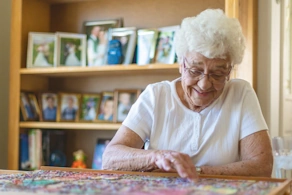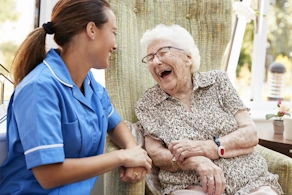How Dehydration Can Lead To Dizziness And What To Do About It
Hydration is incredibly necessary for seniors in Canada who may face unique challenges in maintaining adequate fluid levels. Dehydration can lead to dizziness, a symptom that poses significant health risks. Examine how insufficient fluid intake can cause dizziness and discover practical hydration tips tailored for seniors. Recognizing these connections can help seniors stay healthy and safe.
Life Assure Product Quiz
Take our 30 second quiz and discover which Life Assure medical alert device is the right fit for you or a loved ones.
Life Assure Product Quiz
Take our 30 second quiz and discover which Life Assure medical alert device is the right fit for you or a loved ones.
Recognizing Dehydration
Dehydration happens when the body loses more fluids than it takes in, leaving it short on the water needed for everyday functions. Seniors often have difficulties staying hydrated. As we age, our sense of thirst diminishes, so older adults might not feel thirsty even when their bodies need water. Medical conditions and medications can also contribute to fluid loss or reduced intake.
For seniors, common dehydration triggers include not drinking enough water, excessive sweating, diarrhea, vomiting, and certain medications like diuretics. In Canada, the cold weather can be deceptive; dry air and indoor heating can lead to fluid loss without noticeable sweating.
Recognizing dehydration symptoms is imperative. These can include thirst, dry mouth, reduced urine output, dark urine, fatigue, and confusion. Early detection helps prevent more serious health issues. By comprehending these factors, seniors can take steps to stay hydrated and avoid complications.
The Link Between Dehydration And Dizziness

Dehydration can lead to dizziness by reducing blood volume, which lowers blood pressure and limits oxygen and nutrients to the brain. This is particularly risky for seniors, as dizziness can lead to falls. When dehydrated, the body may respond by increasing heart rate to maintain blood flow, which can also cause dizziness. The inner ear, needed for balance, can be affected by dehydration, worsening the issue.
Research highlights the connection between dehydration and dizziness, noting that even mild dehydration can impair balance and cognitive function. Staying hydrated is necessary for seniors to keep their systems running smoothly and reduce the risk of dizziness. By ensuring adequate fluid intake, seniors can help stabilize blood pressure and support overall health, minimizing dizziness and its complications.
Identifying Dizziness Related To Dehydration
For seniors, pinpointing dizziness linked to dehydration helps address it effectively. This dizziness often comes with telltale signs like lightheadedness when standing, dry mouth, increased thirst, and reduced urine output. Fatigue and confusion can also signal dehydration.
Context matters. If dizziness follows a day of not drinking enough water or losing fluids through heat, exercise, or illness, dehydration is likely the cause. However, dizziness can stem from other issues like ear problems, low blood pressure, or side effects from medication. Recognizing these patterns and symptoms helps seniors and caregivers act quickly to rehydrate and avoid further issues. Persistent or severe dizziness should prompt a visit to a healthcare professional to rule out other causes.
Effective Hydration Strategies For Seniors
For seniors, staying hydrated is pivotal to maintaining health and preventing dizziness. Generally, seniors should aim for 1.5 to 2 liters of water daily, though individual needs vary based on health and activity levels. Here are some practical ways to help seniors boost their fluid intake:
- ● Set a Schedule: Encourage regular drinking by setting reminders. Sipping small amounts throughout the day is often easier than drinking large quantities at once.
- ● Flavor Water Naturally: Enhance water's appeal by adding lemon, cucumber, or mint slices.
- ● Eat Hydrating Foods: For added hydration, include fruits and vegetables like cucumbers, watermelon, and oranges in meals and snacks.
It's also necessary to limit caffeinated and alcoholic drinks, as they can lead to dehydration.
Choosing The Right Fluids
Water is the top choice for hydration, but herbal teas and broths are also beneficial, offering hydration without added sugars or caffeine. Coconut water is another excellent option, as it is rich in electrolytes, which can help replenish fundamental minerals lost through dehydration. Low-sodium vegetable juices can also be a good choice, providing both hydration and nutrients. Seniors must choose drinks that are both hydrating and contribute positively to their overall health.
Monitoring Hydration Levels
Seniors can monitor their hydration by checking their urine color, which should be light yellow. Darker urine may signal dehydration. Keeping a daily log of fluid intake can also help ensure adequate hydration.
Adapting Hydration Habits To Lifestyle And Health Conditions
Those with specific health conditions, like kidney issues or heart failure, might need to adjust their fluid intake. For example, people with these conditions may exacerbate their symptoms by drinking too much water, so fluid restrictions are necessary in these cases. Seniors with these conditions must follow their doctor's advice on how much to drink to avoid overloading their systems while still preventing dehydration. Balancing fluid intake is key, especially when managing complex health issues.
Consulting a healthcare provider can help tailor hydration strategies to individual needs. Seniors should increase fluid intake during physical activity or in warmer climates to offset fluid loss.
Additional Tips For Preventing Dehydration

A balanced diet of fruits, vegetables, and whole grains supports hydration. Regular medical check-ups are key for managing hydration and overall health, helping to identify any issues that might contribute to dehydration.
If the seniors should seek medical advice to rule out other causes, and if dizziness persists, they should receive appropriate treatment. A doctor can conduct a thorough assessment to determine the underlying causes of dizziness. This may involve reviewing the senior's medical history, current medications, and performing physical examinations. They might also recommend blood tests for electrolyte imbalances or dehydration-related issues. If necessary, a doctor could suggest adjustments to medication or dietary changes to improve hydration status. Sometimes, they might refer the senior to a specialist for further evaluation. By addressing the root cause of dizziness, healthcare professionals can provide tailored advice and treatment, helping seniors manage symptoms effectively and maintain their independence.
Conclusion
Dehydration can lead to dizziness, especially in seniors prone to fluid imbalances. Prioritizing hydration is needed for maintaining health and preventing falls related to dizziness. By understanding the link between dehydration and dizziness, seniors can adopt effective hydration strategies, choose suitable fluids, and monitor their hydration levels. These steps are advantageous for staying healthy and active, ensuring seniors in Canada enjoy a better quality of life











 Get Help With The Push Of A Button
Get Help With The Push Of A Button














